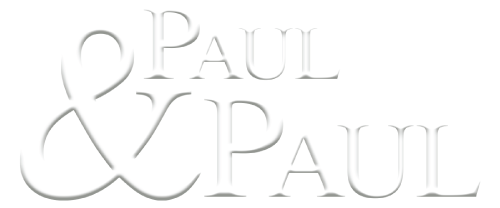As Artificial Intelligence (AI) increasingly influences the invention process, inventors may question how patent law addresses AI-assisted innovations. The intersection of AI and patent law presents unique challenges, particularly around ownership, inventorship, and the patentability of AI-generated work. Protecting AI-driven inventions requires a solid strategy, as existing patent laws primarily address human inventors, which can complicate the process for AI-assisted creations. Understanding how AI aligns with current patent frameworks provides a foundation for securing intellectual property rights. For tailored legal advice on navigating U.S. Intellectual Property Law, consult Paul & Paul to ensure proper protection of your AI-related invention.
AI’s Role in Invention
AI has fundamentally altered the process of invention in many fields, bringing with it a seismic shift in the way new ideas and products are conceptualized and developed. By providing a rich bed of data analysis, AI tools can assist inventors in condensing complex datasets into manageable insights. The result is a potent catalyst for creativity that can drive new and innovative ideas.
In the intersection of AI technology and traditional invention methods, we see a blend of human creativity and machine-assisted analysis. AI applications can generate hypotheses, support the optimization of designs and materials, and even improve the efficiency of scientific experiments. With such capabilities, AI not only assists in the process of invention, but in some cases, it may also autonomously generate inventions with minimal human input.
How AI-Assisted Inventions Fit Within Current Patent Law
Patent laws, designed decades before the advent of AI, are now grappling with accommodating this new innovation “partner.” Central to patent law is the concept of patentability—to qualify for a patent, an invention must be novel, non-obvious, and useful. While AI assists in creating such inventions, its role in the process raises complex legal questions.
Legal precedents and rulings so far have largely focused on the role of human inventors and have not specifically addressed the unique circumstances surrounding AI-assisted inventions. However, there are ongoing cases in courts internationally that could help set the benchmarks for AI’s contribution to patentable innovations.
The U.S. Patent and Trademark Office (USPTO), for instance, adheres to the principle that inventions must be the product of human ingenuity. In this context, inventions generated by AI could be viewed as unpatentable, as these do not satisfy the inventive step requirement as defined by human standards. Therefore, the challenge lies in demonstrating how AI was used as a tool or a resource by a human inventor rather than as a co-inventor.
Challenges in Patent Eligibility for AI-Assisted Inventions
Patenting an AI-assisted invention presents a unique set of challenges. Traditional patent law focuses on tangible, human-derived creations, which prompts questions about the originality and authorship of AI-assisted inventions. Identifying the true inventor can be a complex process when AI has contributed significantly to the invention.
Issues of ownership also emerge when AI contributes to the creation process. Some argue that the AI system’s developer, who has invested time and money in creating the AI, should be recognized as the inventor. Others, however, contend that AI is merely a tool used by a human inventor and should not be considered an inventor in itself.
Strategies for Protecting AI-Assisted Inventions
Navigating the patent application process for AI-assisted inventions requires a strategic approach. You must demonstrate the human contribution to the invention process. Detailing the human involvement at each stage can strengthen the patent application.
Also, you need to document the AI’s role as a tool rather than a co-inventor. Securing legal counsel with experience in AI and patent law can greatly assist in preparing a strong application and handling potential legal obstacles.
Legal Responsibilities and Considerations
Inventors using AI in the invention process must understand and fulfill their legal responsibilities. They should be aware of potential legal risks, including patent infringement and ownership disputes. To prevent such issues, it is advisable to have clear agreements regarding the use of the AI system and its contribution to the invention.
The Future of Patent Law and AI
The legal landscape surrounding AI-assisted inventions is evolving. As AI continues to play a more significant role in the creation process, patent law will likely adapt to accommodate these changes. Ongoing legal and industry debates focusing on the definition of inventorship and the eligibility of AI-assisted inventions for patent protection could result in significant changes in patent law.
Get Assistance From Paul & Paul
The process of patenting an AI-assisted invention is complex due to the unique intersection between AI technology and traditional patent law. As AI continues to advance, you should remain informed about the evolving legal landscape and ensure the appropriate protection of AI-assisted inventions.
For experienced legal guidance on patenting an AI-assisted invention, contact Paul & Paul at (215) 568-4900. Schedule a free consultation with our firm for personalized advice on your specific invention and patent needs.
